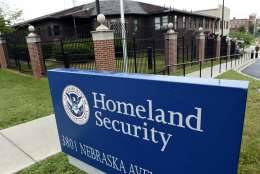National Institute of Standards and Technology
-
As a deadline for implementation draws near, the National Institute of Standards and Technology is working with agencies to ensure their legacy systems are keeping up with the latest standards in identity management and authentication solutions.
January 31, 2018 -
Jeff Koch, a former Bush administration political appointee, is returning to federal service at the Labor Department.
January 29, 2018 -
On this episode of Women of Washington, host Gigi Schumm welcomed Donna Dodson, chief cybersecurity officer at the National Institute of Standards and Technology.
January 24, 2018 -
Federal agencies and leadership take to apps such as Facebook and Twitter to remind public and employees that they're open for business
January 23, 2018 -
NIST's Tim Polk joins the Federal Drive to dissect the draft strategy of the Homeland Security and Commerce Departments for mitigating risks from botnets
January 12, 2018 -
Brad Gandee, the vice president for product marketing and management at GigaTrust, offers the industry some ideas for how best to meet DoD’s data requirements.
January 04, 2018 -
In today's Federal Newscast, the National Institute of Standards and Technology will soon start hosting events to exchange ideas on methods and technologies to ensure Internet of Things devices are secure.
January 01, 2018 -
The Defense Department has several tests planned for 2018 for different biometric modalities.
December 18, 2017 -
Though federal employees avoided $32 billion in potential cuts to the current retirement system in the 2018 budget resolution, Sen. Ben Cardin (D-Md.) said he's still keeping an eye on familiar proposals that lawmakers may tie to new tax reform policies.
October 30, 2017 -
The Homeland Security Department says agencies have 30 days to come up with a plan to remove Kaspersky Lab products from their networks.
October 30, 2017 -
The Federal Risk Authorization Management Program (FedRAMP) estimates the cost to implement NIST SP 800-53 Revision 5 to be in the millions.
October 16, 2017 -
NIST recently completed a "security sprint" and is implementing lessons learned.
October 11, 2017 -
The U.S. Mint is searching for a new chief information officer, while the Senate confirmed NIST’s new director.
October 09, 2017 -
The Homeland Security Department and the National Institute of Standards and Technology sponsor the Global City Teams Challenge to help cities design in cybersecurity.
October 02, 2017 -
Amid the "chaos and complexity" of the Internet of Things are basic cybersecurity rules agencies can follow to secure devices but not suffocate innovation.
September 21, 2017















